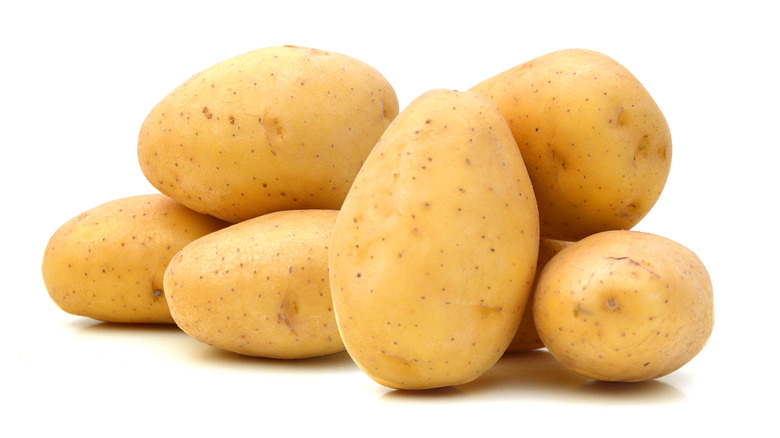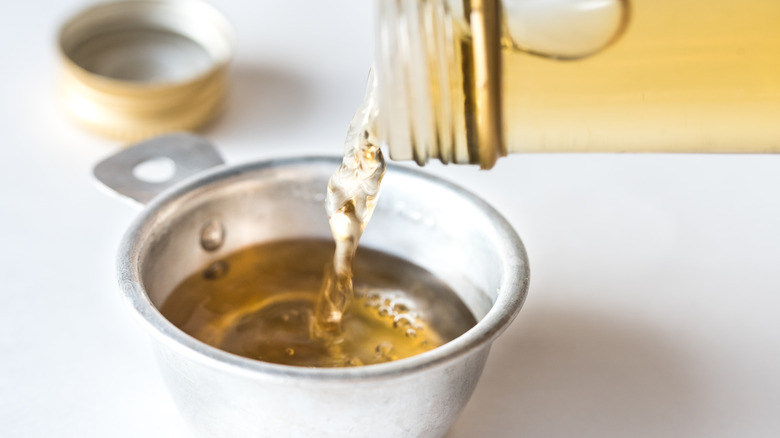If Your Potatoes Are Taking Forever To Cook, This Could Be Why
CORRECTION 1/5/23: A previous version of this article stated that vinegar has a high pH level that prevents potatoes from properly cooking. Vinegar has a low pH level.
According to Farmers' Almanac, folks in the United States eat about 120 pounds of potatoes per person each year, which is a little more than twice the amount of lettuce we nibble on. Of course, they're so versatile we can hardly blame people for reaching for the tuber meal after meal. Perfect mashed with a pat of butter or fried and doused in ketchup, on a hot summer's day, nothing says backyard party like homemade potato salad. And if you are juggling work and kids, the easily customized baked potato loaded with everyone's favorite toppings can be a dinnertime lifesaver.
The Spruce Eats shares that there's a vast variety of potatoes to be had, but all potatoes fall into one of three buckets: starchy, waxy, and all-purpose. And naturally, all potatoes are not created equal — especially when it comes to how you should cook them. The potatoes that are best for french fries are different from the potatoes you might use to make scalloped potatoes. The type of potato you use even influences your dish's cook time! But if you've ever experienced the feeling that your potatoes are taking forever to cook, or you bite into one and find it's still hard in the center, the fault may not lie in your choice of spud.
Acidic ingredients could be the problem
According to Serious Eats, adding a little vinegar to your potatoes as they cook will help your spuds keep their shape. However, if you're unaware of the vinegar hiding in your recipe's ingredients (or simply oblivious to its clock-stopping abilities) you could be hindering the cooking process. That is something Bon Appétit learned after a few frustrating attempts at perfecting a recipe for cornish game hens. Consulting the internet and double-checking with food scientist Harold McGee's culinary tome, "On Food and Cooking: The Science and Lore of the Kitchen," the outlet came to the realization that the vinegar brine in the recipe was to blame for rock-solid potatoes despite hours of cooking.
Of course, this doesn't only apply to vinegar. Other acidic ingredients, like wine or tomatoes, can also prevent your potatoes from properly cooking. Baking Kneads explains this is a result of the potato's pectin chains and their inability to soften when they come into contact with acidic ingredients. To get around this challenge, you basically just need to cook the potatoes — at least partially — before adding the offending ingredient.

